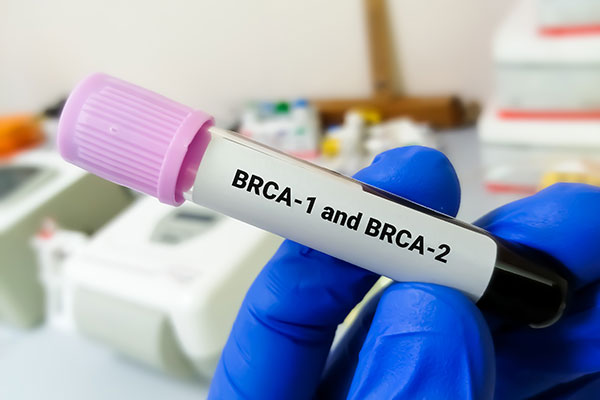The new year brings fresh starts, goal-setting, and resolutions focused on better health. But while you’re planning gym routines and meal prep, there’s another crucial aspect of wellness that deserves a prominent spot on your 2026 calendar: your women’s health screenings and preventive care appointments.
Many women postpone routine gynecological care, telling themselves they feel fine or they’re too busy. Yet preventive screenings exist precisely because serious conditions often develop without symptoms in their early, most treatable stages. Waiting until you notice problems means potentially missing the window when intervention is simplest and most effective.Taking charge of your reproductive and overall health in 2026 starts with understanding which screenings you need, when you need them, and why they matter more than you might realize.
Annual Well-Woman Exam: Your Foundation for Preventive Care
The annual well-woman visit remains the cornerstone of women’s health maintenance, regardless of your age or current health status.
Comprehensive Health Assessment: Your annual exam goes far beyond a simple checkup. Your provider evaluates your overall health, reviews your medical history, discusses any concerns or symptoms, and assesses risk factors for various conditions. This comprehensive approach catches potential problems early and provides guidance tailored to your specific circumstances.
Pelvic and Breast Examinations: Clinical pelvic exams allow your provider to evaluate your reproductive organs for abnormalities, while breast exams screen for lumps or changes that warrant further investigation. These hands-on assessments detect issues that you might not notice yourself, especially in early stages when treatment is most successful.
Vital Sign Monitoring and Health Metrics: Blood pressure, weight, and body mass index measurements track important health indicators. Elevated blood pressure, for instance, affects pregnancy outcomes and overall cardiovascular health. Regular monitoring establishes your baseline and identifies trends that need attention.
Opportunity for Open Discussion: Perhaps most importantly, your annual exam provides dedicated time to discuss concerns you might hesitate to bring up otherwise. Irregular periods, painful intercourse, urinary issues, sexual health questions, contraception needs, or fertility concerns all deserve professional attention. Your provider can address these topics in a confidential, judgment-free environment.
Cervical Cancer Screening: Understanding Current Guidelines
Cervical cancer screening guidelines have evolved significantly, becoming more personalized based on age and test results.
Pap Tests for Women 21-29: If you’re between 21 and 29, you need a Pap test every three years. HPV testing alone isn’t recommended for this age group because HPV infections are common and usually resolve without intervention. The Pap test screens for cellular changes that could indicate precancerous conditions.
Combined Testing for Women 30-65: Once you reach 30, you have options: a Pap test alone every three years, an HPV test alone every five years, or co-testing with both Pap and HPV every five years. Your provider will recommend the approach that makes sense for your individual situation, considering your history and risk factors.
Risk-Based Adjustments: Your screening frequency might differ from standard guidelines if you have certain risk factors. Previous abnormal results, weakened immune system, HIV-positive status, or in-utero DES exposure all warrant more frequent monitoring. Your provider creates a personalized screening schedule based on your specific circumstances.
Why Consistency Matters: Skipping scheduled screenings creates dangerous gaps in monitoring. Cervical cancer develops slowly, and regular screening catches precancerous changes when treatment is minimally invasive. Missing appointments means potentially missing the window when prevention is still possible.
Breast Health: Screening Recommendations by Age
Breast cancer remains one of the most common cancers affecting women, making appropriate screening crucial for early detection.
Clinical Breast Exams: Your provider performs breast exams during well-woman visits, typically starting in your twenties. These examinations complement—but don’t replace—mammography screening when you reach the appropriate age. Professional exams identify suspicious changes that warrant imaging or further evaluation.
Mammography Starting at Age 40: Current guidelines recommend women at average risk begin annual mammograms at age 40. Some organizations suggest starting at 45, but many providers and patients prefer the earlier start for maximum early detection benefit. Discuss your individual risk factors with your provider to determine the best timing for you.
Earlier Screening for High-Risk Women: If you have a family history of breast cancer, known genetic mutations like BRCA1 or BRCA2, previous chest radiation, or other significant risk factors, you may need to begin mammography earlier and possibly include additional screening methods like breast MRI. Risk assessment helps determine your personalized screening plan.
Self-Awareness Over Self-Exams: While formal monthly self-breast exams are no longer universally recommended, knowing what’s normal for your breasts remains important. Familiarity with your breast tissue helps you recognize changes worthy of medical attention—new lumps, skin changes, nipple discharge, or persistent pain all warrant evaluation.
STI Testing: Breaking the Stigma Around Sexual Health
Sexually transmitted infection testing is an essential component of women’s health, yet stigma prevents many women from seeking appropriate screening.
Routine Screening for Sexually Active Women: If you’re sexually active and under 25, annual chlamydia and gonorrhea screening is recommended. These common infections often cause no symptoms but can lead to serious complications including pelvic inflammatory disease and infertility if left untreated.
Risk-Based Testing for All Ages: Women over 25 should receive STI testing based on risk factors—new sexual partners, multiple partners, partners with known infections, or symptoms suggesting infection. Being in a long-term relationship doesn’t eliminate risk if circumstances change or if previous infections went undetected.
Comprehensive Testing When Appropriate: Beyond chlamydia and gonorrhea, comprehensive STI panels can include HIV, syphilis, hepatitis B and C, and herpes testing depending on your exposure risks and symptoms. Complete sexual health requires addressing all potential infections, not just the most common ones.
Confidential and Judgment-Free: Healthcare providers understand that sexual health is simply health. Requesting STI testing doesn’t invite judgment—it demonstrates responsible self-care. Being honest about your sexual history allows your provider to recommend appropriate screening and protect your long-term health.
Bone Density and Other Age-Specific Screenings
As you age, additional screenings become important for maintaining optimal health and catching age-related conditions early.
Bone Density Testing: Most women should have baseline bone density screening at age 65, though earlier testing is recommended if you have risk factors like family history of osteoporosis, small frame, smoking, excessive alcohol use, or long-term steroid use. Early detection of bone loss allows intervention before fractures occur.
Cholesterol and Cardiovascular Screening: Heart disease is the leading cause of death in women. Regular cholesterol screening typically begins at age 45, or earlier with risk factors. Blood pressure monitoring at every healthcare visit tracks another crucial cardiovascular indicator.
Diabetes Screening: Women should be screened for type 2 diabetes starting at age 35, or earlier if overweight or obese with additional risk factors. Gestational diabetes history, polycystic ovary syndrome, or family history of diabetes all warrant earlier and more frequent screening.
Colorectal Cancer Screening: While not gynecologic-specific, colorectal cancer screening beginning at age 45 is crucial for women’s health. Your gynecologist can coordinate this screening or refer you to appropriate specialists to ensure you receive recommended preventive care.
Preconception and Pregnancy Planning
Even if pregnancy isn’t immediately in your plans, preconception health deserves attention when motherhood is anywhere on your horizon.
Preconception Visit Before Trying: Ideally, schedule a preconception visit before you start trying to conceive. This appointment assesses your overall health, reviews medications that might affect pregnancy, ensures vaccinations are current, and identifies risk factors that need management before conception.
Folic Acid Supplementation: Women planning pregnancy should begin taking folic acid supplements at least one month before conception. This crucial nutrient prevents neural tube defects and other developmental problems. Your provider can recommend appropriate dosing based on your circumstances.
Managing Chronic Conditions: Conditions like diabetes, hypertension, thyroid disorders, or autoimmune diseases need optimization before pregnancy. Uncontrolled chronic conditions increase pregnancy complications, but proper management dramatically improves outcomes for both mother and baby.
Fertility Discussion and Timeline: If you’re thinking about pregnancy in the future, discussing fertility with your provider helps you make informed decisions. Understanding age-related fertility changes, potential obstacles, and optimal timing empowers you to plan effectively.
Mental Health: An Integral Part of Women’s Wellness
Women’s health encompasses mental and emotional wellbeing alongside physical health, and your gynecologist plays a role in addressing these concerns.
Depression and Anxiety Screening: Many OB/GYN practices now incorporate mental health screening into routine visits. Depression and anxiety affect women at higher rates than men, and reproductive events—menstruation, pregnancy, postpartum period, and menopause—can trigger or worsen mental health symptoms.
Postpartum Mental Health: If you’ve had a baby within the past year, postpartum depression screening is essential. Postpartum mood disorders affect up to 20% of new mothers and require professional treatment. These conditions aren’t character flaws or weaknesses—they’re medical issues with effective treatments.
Perimenopausal Mood Changes: Women approaching menopause often experience mood swings, irritability, anxiety, or depression related to hormonal fluctuations. Recognizing these symptoms as potentially hormone-related rather than personal failings allows appropriate intervention.Connecting to
Resources: Your women’s health provider can screen for mental health concerns, provide initial support, and connect you with mental health specialists when needed. Addressing psychological wellness is just as important as managing physical health conditions.
Make 2026 Your Healthiest Year Yet in Cumming
Preventive care only works when you actually show up for it. Those screenings you’ve been postponing, the symptoms you’ve been ignoring, and the questions you’ve been meaning to ask all deserve professional attention this year.
The providers at North Pointe OB/GYN in Cumming understand that women’s healthcare needs change throughout life stages. From adolescence through reproductive years and into menopause, their comprehensive approach addresses your unique health concerns with expertise and compassion.Don’t let another year pass without prioritizing your health. Contact North Pointe OB/GYN today to schedule your 2026 well-woman visit and any overdue screenings. Taking charge of your health starts with that first phone call—make it today.







